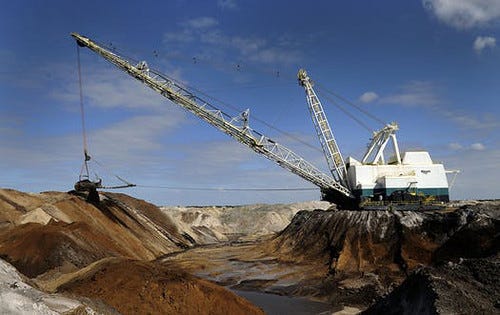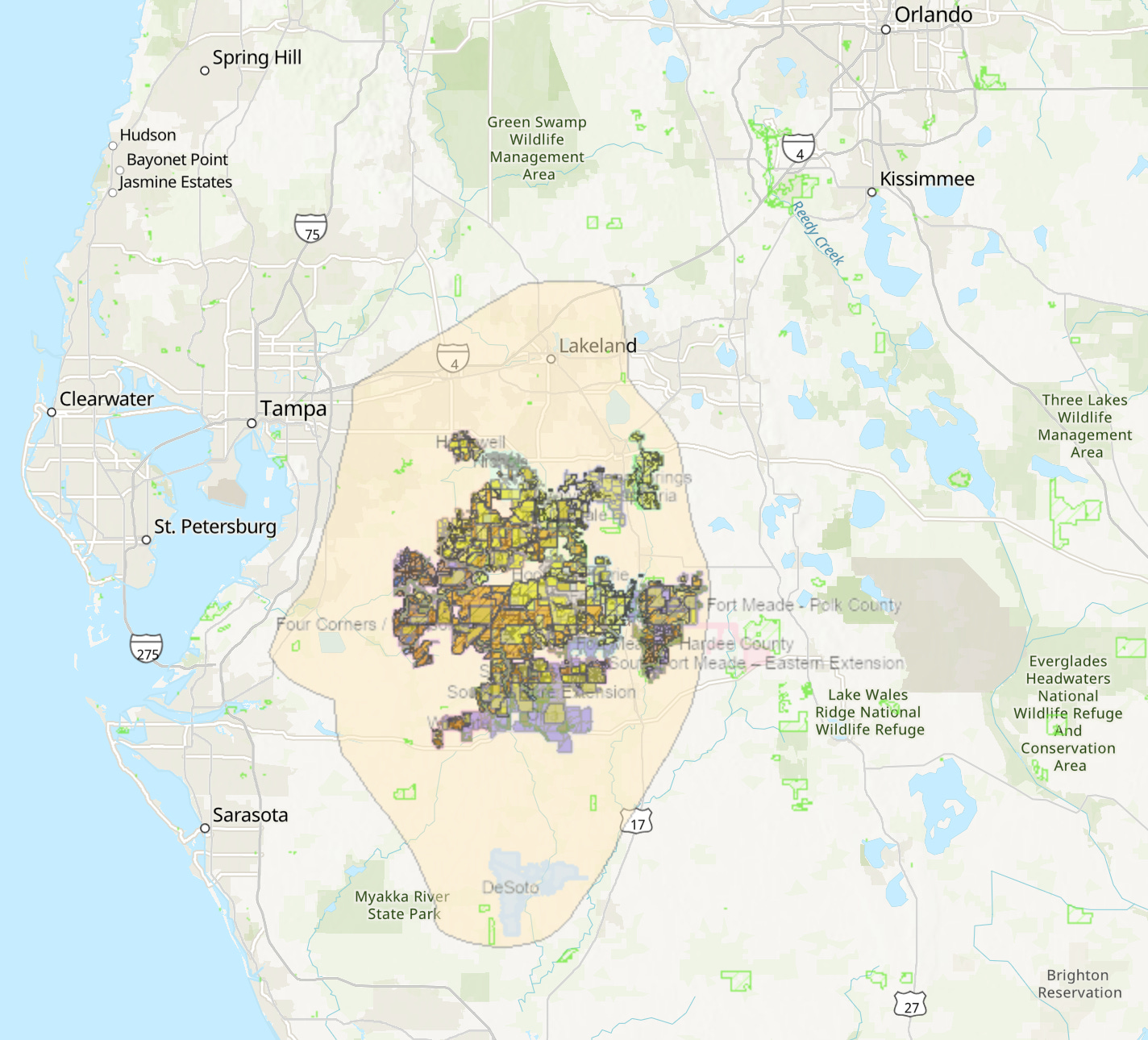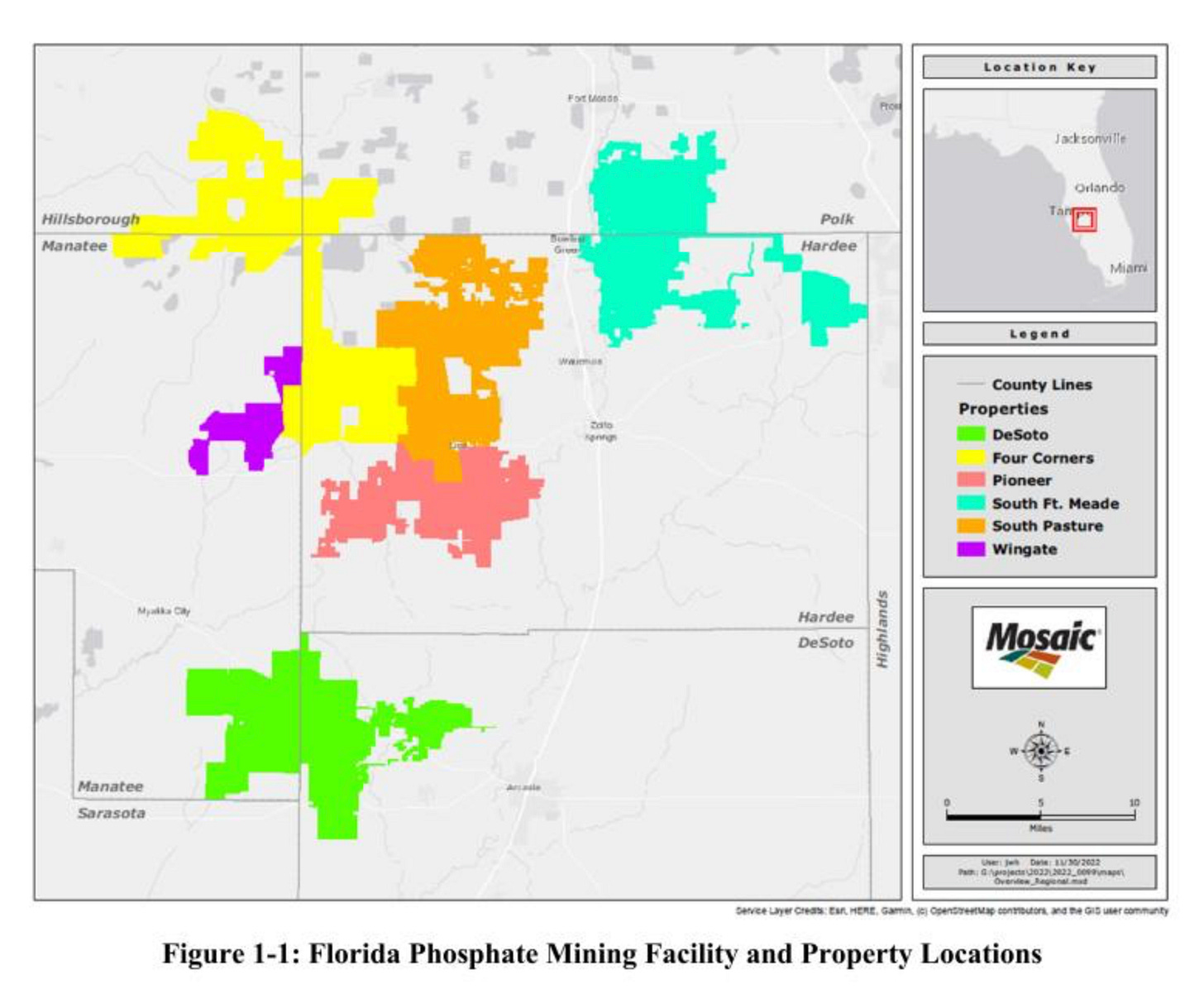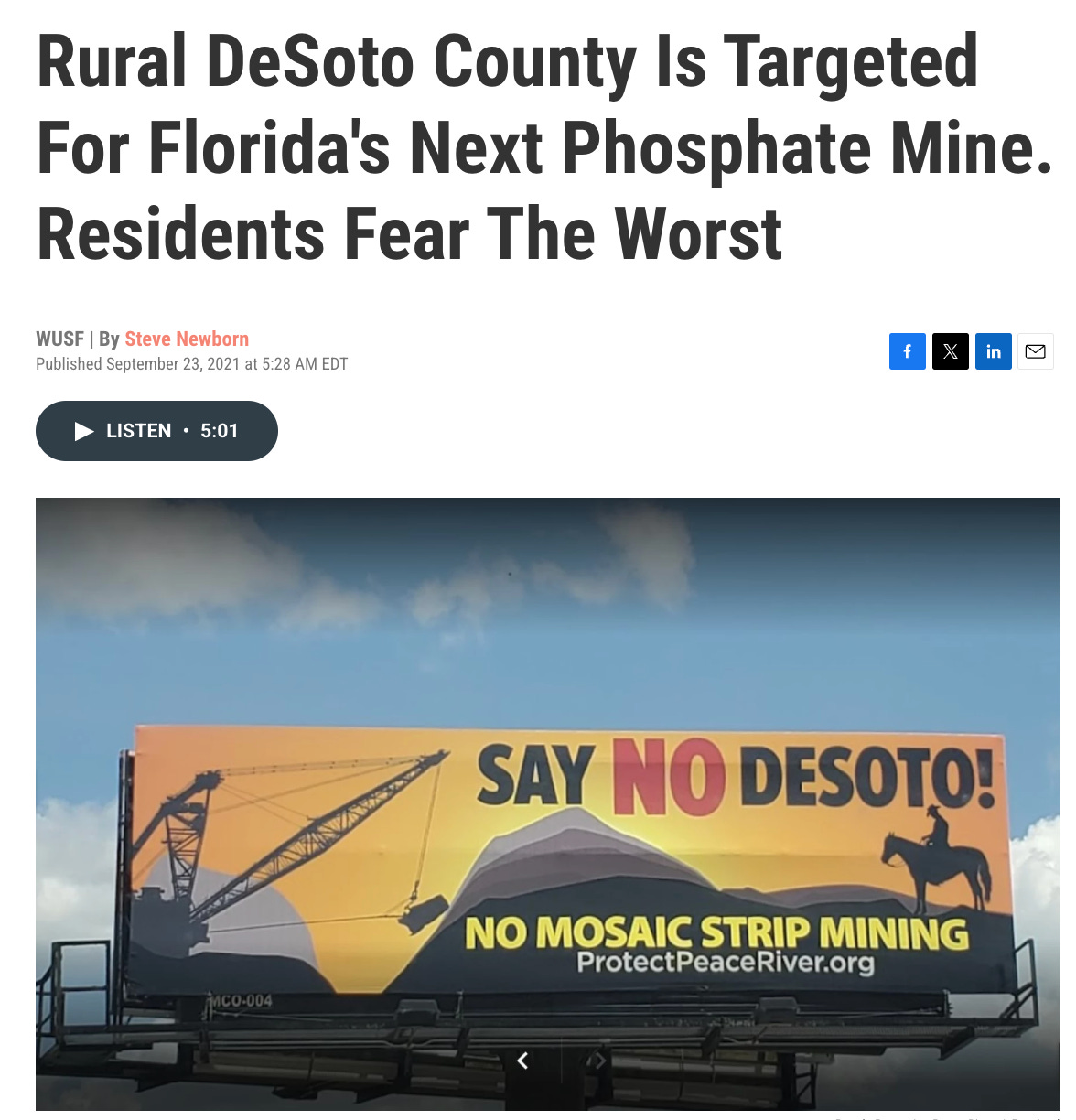Florida lawmakers may help a mining giant fend off lawsuits
New legislation to stifle lawsuits targeting phosphate-mining companies is part of a broader effort by Florida Republicans to support the Mosaic Co., a Fortune 500 fertilizer giant.

This is Seeking Rents, a newsletter and podcast devoted to producing original journalism — and lifting up the work of others — about Florida politics, with an emphasis on the ways that big businesses and other special interests influence public policy in the state. Seeking Rents is produced by veteran investigative journalist Jason Garcia, and it is free to all. But please consider a voluntary paid subscription, if you can afford one, to help support our work. And check out our video channel, too.
For nearly five years, the Fortune 500 fertilizer giant Mosaic Co. has been trying to fend off a lawsuit brought by a pair of mobile homeowners in Florida who say they have been exposed to dangerous levels of radiation while living in trailer parks built atop land Mosaic once mined for phosphate.
Now, Florida lawmakers may step in to give Mosaic a hand.
Two Republican legislators in Tallahassee are sponsoring bills that would extend new legal protections to companies that have mined phosphate ore in Florida — and left behind radioactive materials buried just below the surface.
If passed by Florida’s GOP-controlled Legislature and signed into law by Gov. Ron DeSantis, the legislation could help Mosaic finally derail the niggling lawsuit it has been fighting since August 2020.
But that impact could extend far beyond that one small suit. That’s because the legislation could short circuit any future similar claims in Florida, a state with more than 450,000 acres of current and former phosphate mines. Most of that roughly 700 square miles of land is concentrated in the state’s southern interior, southeast of Tampa Bay — and much of it is owned by Mosaic, an $8 billion industrial conglomerate forged from agribusiness mergers that today dominates the phosphate-mining industry.

The legislation is also part of something larger.
Florida Republicans have made a concerted effort in recent years to support Mosaic, one of the states’ biggest corporations and largest campaign contributors — a company that plays an important role in the food supply chain but also wreaks utter havoc on the environment.
Since 2023, DeSantis and the Legislature have ordered transportation planners to explore building roads with toxic waste left over from the chemical manufacturing process Mosaic uses to help transform phosphate ore into fertilizer. They have put more than $20 million of taxpayer money into research aimed at using that same waste as a source of rare earth metals. And now the DeSantis administration may let Mosaic dispose of some of the polluted process water it produces by injecting it into the ground, according to a new report by Max Chesnes of the Tampa Bay Times.
The focus on finding new ways to use or hide waste left behind by the phosphate industry comes as Mosaic tries to open its first brand new phosphate mine in Florida in decades. County commissioners in tiny DeSoto County — where Mosaic owns more than 20,000 acres — already rejected the company once in 2018 amid intense local opposition.
But Mosaic has said it may try again in 2025.
In some respects, this new legislation filed ahead of Florida lawmakers’ 2025 session is yet another attempt to deal with phosphate industry waste.
But in this case, the waste is the land itself.
Phosphate miners excavate phosphate ore, which is found in vast quantities under the ground across much of west-central Florida. Once miners finish removing the rock from a mine, they are required by law to “reclaim” the site — which essentially means refilling all the deep trenches and canyons they have dug and restoring the land to a facsimile of its former state.
But phosphate ore contains elevated levels of uranium and radium. And the mining and reclamation process leaves some of that radioactive material — which was originally between 20 feet and 50 feet underground — much nearer to the surface.
While the mining industry contends that the resulting radiation levels are very low and safe, it leaves lingering legal liability for Mosaic and other owners of old phosphate land. It’s one reason — one of many — that reclaimed mines can be difficult to redevelop.
Stifling any lawsuits over that remaining radioactivity could make the land more appealing for development.
But it would also be a much more significant change than studying whether phosphogypsum can be a source of construction aggregate and critical minerals or testing a few deepwater injection wells.
That’s partly because there is simply so much former phosphate mine land in Florida. Mosaic alone owns or controls approximately 368,000 acres in Florida, with somewhere around half of its mine lands already depleted and reclaimed. Some of that reclaimed land has been put to new uses — from state parks to public playgrounds, sod fields to cauliflower patches, and modest trailer parks to a gleaming golf resort that Mosaic sold in 2023 for $160 million.

But it’s also because there has been relatively little recent public research into public health and safety of reclaimed phosphate mines. And while there have been at least two recent lawsuits over the issue, neither reached a full resolution.
One was a federal case involving the Drummond Co., an Alabama-based coal company that no longer mines phosphate in Florida. The case settled last year.
And the other is the case against Mosaic in Hillsborough County, which is substantive enough that a judge denied the company’s attempt to have it dismissed. Mosaic has alerted its investors to the suit, which is now into discovery, and vowed to “vigorously defend this matter.”
That uncertainty hasn’t stopped Sen. Danny Burgess (R-Zephyrhills) and Rep. Jon Albert (R-Frostproof) from trying to rewrite the litigation rules around such suits.
Their bills — House Bill 585 and Senate Bill 832 — would do two main things.
First, they would carve a new exception into a law known as the “Water Quality Assurance Act” which makes companies responsible for any damage caused by certain types of pollution.
The Water Quality Assurance Act is one of the strongest environmental laws on the books in Florida. That’s because it imposes what’s known as “strict liability” — which means a company that pollutes the ground or water can be forced to compensate any victims regardless of whether the pollution was the result of the company’s negligence or a pure accident. The idea is to make sure that anyone handling potentially dangerous contaminants has maximum financial incentive to be careful.
House Bill 585 and Senate Bill 832 would essentially eliminate strict liability for companies in claims arising from “the natural geology substance” of a former phosphate mine — like naturally radioactive uranium or radium that has been moved closer to the surface by mining.

That means someone who may have been sickened by radiation exposure would have to not only prove that the mining company caused the elevated radiation but that it was somehow negligent in doing so.
But the bills would erect new barriers to negligence claims, too. Specifically, they would require a potential plaintiff to conduct detailed radiation surveys of their own before they could file a suit — which could pose complications if, for instance, a landowner refused to grant access to their property for testing.
Burgess and Albert — who both represent parts of Florida’s phosphate country — declined to answer questions about the legislation.
So did Mosaic, which records show has half a dozen lobbyists registered to work on the bills.
Separate records also show that Mosaic has been cutting large checks to key lawmakers this month — a including $10,000 donation to Burgess that was deposited four days before the senator filed his bill to help Mosaic.






Have you seen our locally filmed documentary PhosFateMovie.com ?
The only emotional respite for decent, unselfish, environmentally-minded human beings is knowing that climate change has extra special plans in store for FLORIDUH. As ever more intense hurricanes and extreme heat ratchets up to torment the world, FLORIDUH will have large swaths of development, people, roaches and bullshit policies scraped away.